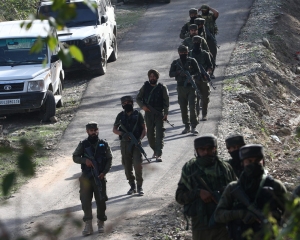Protecting the rights of older people is one of the urgent challenges facing the world today, along with those of refugees and migrants, says SGI President Daisaku Ikeda
All human beings are born free and equal in dignity and rights. Seventy years ago, the Universal Declaration of Human Rights (UDHR) was adopted embodying this spirit.
Protecting the rights of older people is one of the urgent challenges facing the world today, along with those of refugees and migrants.
According to the UN, there are more than 900 million people aged sixty and over in the world today and this number is expected to reach 1.4 billion by 2030. Many governments are struggling to respond to the sudden changes in social structure brought about by rapidly declining birth rates and ageing demographics.
This was one of the issues discussed at the eighth session of the open-ended Working Group on Ageing held at the UN in July 2017. It was pointed out that the enjoyment of all human rights diminishes with age, in spite of the declaration of all people’s equal dignity and rights in the UDHR, due to negative images of the elderly as less productive, less valuable to society, a burden to the economy and to younger generations. Participants agreed that such structural discrimination and prejudice can lead to the social exclusion of older people and must be combated.
International discourse on this important subject only began to develop in earnest with the Vienna World Assembly on Ageing, held in 1982.
The Assembly resulted in the adoption of five UN Principles for older persons in 1991, comprising independence, participation, care, self-fulfillment and dignity. While independence (respecting the will of the individual), care (safeguarding health and daily living) and dignity (ensuring protection from discrimination and abuse) are of course core rights of older people, it is crucial to remember that on their own they are only a starting point.
I am reminded here of the dialogue I conducted with Dr. Ernst Ulrich von Weizsacker, Co-President of the Club of Rome. One of the topics we discussed was how to bring a sense of purpose and fulfillment to the lives of older people. Dr. Weizsacker stressed that it would benefit society as a whole to create the conditions by which they could continue working if they so desired.
I fully agree; it is my firm belief that being able to contribute in some way to the happiness of others and the world, be it through work or in some other capacity, brings one joy and fulfillment in life. In that sense, the other two UN Principles participation and self-fulfillment-are indispensable in enabling older people to experience meaning and satisfaction in their lives.
To be treated well is, of course, essential to a person’s experience of dignity. But even more important is being looked to by others as an irreplaceable source of spiritual support. It is this that brings our dignity to an even brighter luster. The significance of such bonds remains unchanged even by grave illness or dependence on others for nursing care. Being surrounded by people who derive joy and happiness from your presence is itself a source of dignity.
The need for an international legal instrument for the protection of the rights of older people was discussed at the Open-ended Working Group of Ageing. In this regard, I strongly hope there will be an early start to negotiations on a convention on the rights of older persons.
This should be based on the UN Principles referenced above. Further, it should include provisions for what is known as “ageing in place,” whereby people are enabled to continue living with dignity and a sense of purpose in their long-accustomed communities. Protecting the human rights of older people is integral to the creation of a culture of human rights that will not brook any form of discrimination.
The seventieth anniversary of the adoption of the UDHR provides an important opportunity for governments to intensify efforts to protect the rights of older persons, toward societies where the dignity of all people radiates it full potential.
(Daisaku Ikeda is founder of Soka University and the Toda Peace Institute. This article draws on themes from his 2018 peace proposal: Toward an Era of Human Rights: Building a People’s Movement.)























